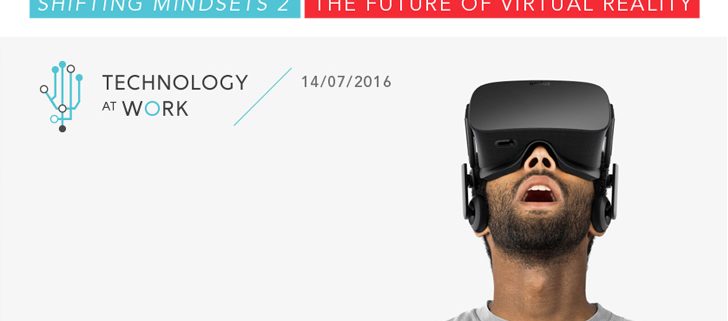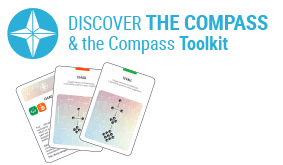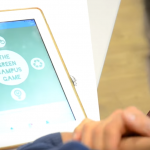Pedagogical use of Virtual Reality Applications
/The future of virtual reality has arrived already and is gradually moving beyond its gadget stage. With the introduction of Ocolus rift the access to immersive learning and simulation experiences has been widely opened. It looks likely that by 2020 computer systems that deliver convincing immersive reasonably reliable virtual reality will cost no more than a big screen television does not. The real-world-simulations make it difficult to distinguish what is still real and what virtual. With this blogpost we would like to build upon the results of a workshop we have done at the ITC-ILO where the pedagogical added value of virtual reality applications was discussed in the context of learning and training.
Throughout exploring Google Cardboard, Samsung Gear and Ocolus Rift the participants brainstormed on how effectively this could be used in the context of learning and training. Here are the different ideas that are mature for virtualisation:
- Occupational safety and health inspections, virtual labour inspection simulations.
- Security procedures and simulations of dangerous situations.
- Invite participants to a 360 degree visit of the Centre before they come to Turin (Flying virtually to Torino as part of the promotion package).
- Virtual tour of ITC-ILO campus facility management.
- Raising awareness on the Child Labour theme.
- Assess if the organised study tours at the Centre could get a virtual component.
- Fire-safety inspections in the garment sector (Bangladesh) – virtual fire drills.
- Experience in 3D the Future of Work scenario’s http://technologyatwork.itcilo.org/the-last-job-on-earth/ .
- Record new facilitation techniques in a 3D environment for Training of Trainer’s purposes.
- Develop 3D films on complex issues in order to increase empathy around these themes : http://www.fastcompany.com/3051672/tech-forecast/how-the-united-nations-is-using-virtual-reality-to-tackle-real-world-problems
- Internal 3D visits of ITC-ILO teams to learn who’s doing what at the Centre.
- Security in the field training.
- Virtual orientation in emergency procedures and simulations.
- Disability could be addressed through the virtual lens.
- Virtual orientations are excellent for virtual TVET centres (in relation with skills development for particular courses).
- Virtual visits of construction sites.
- Gender and race swap in function of cultural diversity. http://donaldclarkplanb.blogspot.it/2014/12/10-mind-blowing-oculus-rift-experiments.html
Which other ideas could you add to this list?
Next to the brainstorming sessions participants were really interested where interesting VR-video’s and applications could be downloaded. Here are a few mentioned in the session
- Clouds over Sidra (The UN documentary on the Syrian refugee camps)
- Download the APP on VR of the New York Times for interesting 3D video’s.
- Waves of Grace (Outbreak of Ebola / survivor story from Liberia)
More suggestions?
Last but not least have a look at the brochure below in which we highlighted the different devices that were used in our workshop. If you are interested to conduct a VR workshop with us do not hesitate to contact us. Just leave your details in the contact form below.
[contact-form to=’t.wambeke@itcilo.org’ subject=’VR workshop request’][contact-field label=’Name’ type=’name’ required=’1’/][contact-field label=’Email’ type=’email’ required=’1’/][contact-field label=’Your request’ type=’textarea’ required=’1’/][/contact-form]









